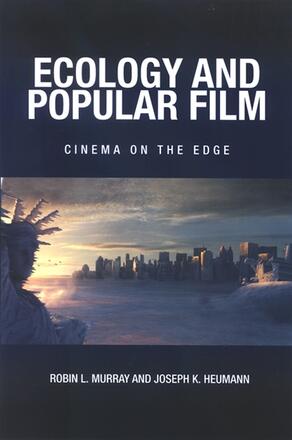
Ecology and Popular Film
Cinema on the Edge
Alternative formats available from:
Ecocritical takes on popular film.
Description
Ecology and Popular Film examines representations of nature in mainstream film while also looking at film itself as a form of nature writing. Considering a selection of mainstream movies that embrace a wide variety of environmental themes, from the Lumières' Oil Wells of Baku (1896) to Al Gore's An Inconvenient Truth (2006), Murray and Heumann explore such themes as environmental politics, eco-terrorism, ecology and home, tragic and comic eco-heroes, the spectacular, and evolutionary narrative, in a manner that is both accessible and fun. Other films discussed include The River (1937), Soylent Green (1971), Pale Rider (1985), 28 Days Later (2002), and The Day After Tomorrow (2004). The book also includes a comprehensive filmography of films that deal with environmental themes and issues.
At Eastern Illinois University, Robin L. Murray is Professor of English and Joseph K. Heumann is Professor of Communication Studies.
Reviews
"A timely and significant contribution to the growing field of ecomedia studies, Ecology and Popular Film: Cinema on the Edge explores the explicit and subtle portrayals of socio-ecological issues at play in a wide range of popular films … [it] will inspire literary and media eco-critics to continue a conversation sure to shape the future of both fields. " — Jump Cut: A Review of Contemporary Media
"…Murray and Heumann's book positions itself firmly in the field of ecocriticism, expanding its scope and influence to include film. " — Film & History
"…delivers an interesting and decidedly unusual take on popular films in America. " — Toledo Alumni Magazine
"At once compact and daring, this remarkable book examines a wide variety of texts that deal with issues of the Earth's rapidly dwindling natural resources … Illustrated throughout with superbly reproduced 'frame grabs' and imbued with a tone that is at once scholarly and accessible, this book deals persuasively with a topic of great concern to contemporary audiences. " — CHOICE
"The authors discover something like an 'ecological consciousness' at work in popular film, finding that movies as diverse as Pale Rider and Eight Legged Freaks bring to light large-scale concerns about ecological well being, and what might be called ecological trauma—opening up a space for hope and change. " — James Morrison, author of Roman Polanski